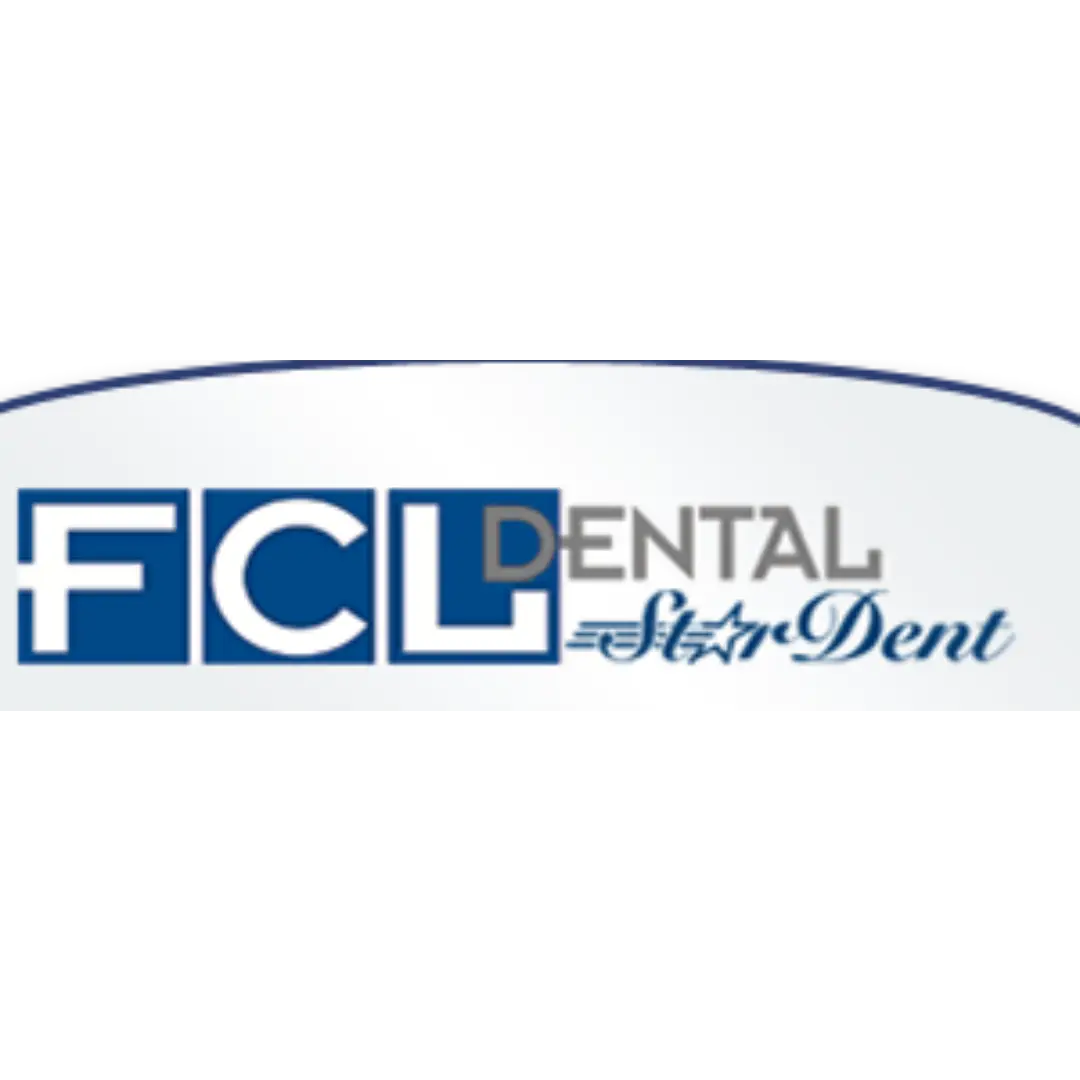Do you know that over 90% of adults in the U.S. have had a cavity at some point in their lives? Cavities, or tooth decay, are common, yet preventable dental issues. Without treatment, cavities can lead to complications like pain, infection, or tooth loss. A t Charm Dental Care, we specialize in preventing and treating tooth decay to help you maintain a healthy, beautiful smile.
In this blog we will explore the causes, symptoms, and the most effective treatments for cavities, helping you protect your smile and oral health.
Table of Contents
What is a Cavity in a Tooth (Tooth Decay)?

A cavity in a tooth, often called tooth decay, is a hole that forms in the tooth due to damage to the enamel, the hard outer layer of the tooth. This happens when bacteria in the mouth feed on sugar and starches from food, creating acids that wear away at the enamel. Over time, this process causes a cavity to develop, leading to pain, sensitivity, and potential damage if not treated.
Tooth decay can occur on different parts of the tooth, including the surface or even near the gums. When the decay reaches deeper into the tooth, it can cause more serious problems, such as infection or tooth loss.
Understanding tooth decay and how it forms is the first step in preventing tooth decay and maintaining good oral health. Regular brushing, flossing, and dental cleanings can help prevent cavities. If you’re unsure about a symptom or need a professional opinion, it’s best to consult a dentist in Katy, Richmond, Spring, Humble, TX, who can provide personalized care and guidance.
Types of Cavities & Where They Occur?
Cavities can develop in different areas of your teeth, and various types of tooth cavities can help you recognize potential issues early on.
1. Pit and Fissure Cavities
These are the most common types of dental cavities, typically forming on the chewing surfaces of the back teeth, also known as molars. The grooves and pits in these teeth can trap food particles and bacteria, which can lead to tooth decay. Regular brushing and the use of dental sealants can help prevent this type of decay.
2. Smooth Surface Cavities
This type of tooth cavity occurs on the flat, smooth surfaces of teeth, often between them. Smooth surface cavities develop when plaque builds up, especially in areas that are harder to clean. This type of dental decay is less common but still serious if left untreated.
3. Root Cavities
Root cavities are more common in older adults or individuals with gum recession. When the roots of the teeth become exposed, they are more prone to dental caries. These types of dental caries can cause significant damage if they aren’t treated early.
Knowing the different types of dental decay and where they occur helps in early prevention. Practicing good oral hygiene, including brushing, flossing, and regular dental check-ups, can reduce the risk of dental decay.
Curious about what causes decay to form and lead to tooth decay? Let’s dive into the most common and severe factors behind it.
What are the Severe & Common Causes of Cavities?

Cavities, or tooth decay, occur when the enamel, the protective layer of your teeth, is damaged. Understanding what causes a cavity can help you take preventive measures and protect your oral health.
Here are some of the most common causes of tooth decay:
1. Poor Oral Hygiene
Not brushing and flossing daily allows plaque to build up, which leads to bacteria creating acids that attack the enamel. This is one of the main causes of a cavity and can lead to further dental caries if left unchecked.
2. Sugary and Starchy Foods
Consuming sugary or starchy foods, such as candy, soda, and bread, is a major cause of tooth decay. Bacteria feed on these sugars and produce acid that erodes the enamel, increasing the risk of tooth cavities.
3. Dry Mouth
Saliva plays a key role in washing away food particles and neutralizing acids. A dry mouth, often caused by certain medications or medical conditions, is a common cause of dental caries as it allows acids to remain on your teeth longer.
4. Frequent Snacking
Constant snacking, especially on sugary foods, exposes your teeth to acids throughout the day. This frequent exposure is a significant factor in what causes cavities in adults and can lead to faster tooth decay.
5. Age and Receding Gums
As you age, your gums may recede, exposing the roots of your teeth, which are more vulnerable to decay. This is one of the main rotting teeth causes seen in older adults, as the softer root surfaces are more easily damaged by plaque, leading to a higher risk of gum diseases and decay.
You Can Also Read:- Decoding Gum Disease: Causes, Symptoms, and Treatment Options
Factors That Can Raise the Risk of Cavities
Several factors can increase the likelihood of developing dental caries. Knowing these dental caries risk factors can help you take steps to prevent tooth decay and maintain better oral health.
1. Poor Oral Hygiene
Inconsistent brushing and flossing habits allow plaque to build up on your teeth, leading to a higher risk of tooth decay. Proper oral care is essential for removing food particles and bacteria that contribute to Tooth pain and preventing further issues like dental infection.
2. Diet High in Sugary and Starchy Foods
A diet rich in sugary snacks, sodas, and starchy foods increases your risk of dental caries. Bacteria in the mouth feed on these sugars, producing acids that break down tooth enamel, leading to a high risk of tooth decay.
3. Receding Gums
As gums recede, the roots of the teeth become exposed, making them more vulnerable to decay. Gum cavities can develop when plaque accumulates in these areas, further increasing the risk of tooth decay.
4. Frequent Snacking or Sipping
Constant snacking or sipping on sugary beverages throughout the day exposes your teeth to acids repeatedly, which can accelerate the development of dental caries.
By being aware of these dental caries risk factors, you can make lifestyle adjustments that help protect your teeth and reduce your risk of developing cavities. Regular dental check-ups, good oral hygiene, and a balanced diet are key to preventing cavities.
Interesting Read:- Top Ways to Prevent Cavities in Children
What are the Signs & Symptoms of Cavities?

Cavities often develop gradually, so recognizing the early tooth decay signs can help you take action before the problem gets worse. Dental caries can lead to discomfort and serious dental issues if not treated.
1. Tooth Sensitivity
One of the first signs of a cavity is increased sensitivity to hot, cold, or sweet foods and drinks. If you notice discomfort when eating or drinking, it could be an early symptom of tooth decay.
2. Toothache or Pain
A persistent toothache is one of the more obvious symptoms of a cavity. If the pain worsens when chewing or biting, it could mean that the decay has progressed deeper into the tooth.
3. Visible Holes or Pits
In more advanced stages of decay, you might see small holes or pits on the surface of the tooth. These visible signs of tooth decay indicate the need for prompt treatment to prevent further damage, such as Root Canal Treatment.
4. Discolored Teeth
Tooth discolouration, such as brown, black, or white spots, can be another sign of a cavity. These spots are often indicators of tooth decay and should be checked by a dentist.
5. Bad Breath or Unpleasant Taste
A persistent bad taste in your mouth or bad breath can be caused by bacteria buildup in the decaying area, which are common symptoms of dental caries.
6. Swelling or Infection
In more severe cases, symptoms of cavity infection can include swelling around the affected tooth or gums, along with pain or even pus. This requires immediate attention to prevent further complications.
Recognizing these early signs can help prevent more serious problems like infection or tooth loss. If you notice any of these tooth-decayed symptoms, it’s important to see your dentist as soon as possible for treatment.
What happens if cavities are left untreated? Let’s explore the complications that occur during tooth decay and why early action is so important!
Complications That Occur During Cavity (Tooth Decay)

If a cavity is left untreated, it can lead to several severe tooth decay complications. What starts as minor damage to the enamel can gradually affect deeper layers of the tooth, resulting in pain and long-term dental problems.
1. Infection and Abscess
As decay progresses, bacteria can reach the inner part of the tooth (the pulp), leading to infection. This can cause swelling, severe pain, and, in many cases, an abscess (a pocket of pus). Infection from a cavity is one of the most serious tooth decay complications and requires immediate treatment, such as a Root Canal, to prevent the infection from spreading to other parts of the body.
2. Tooth Loss
When a cavity is not addressed in time, it can destroy large portions of the tooth, making it beyond repair. This can result in tooth loss and immense tooth pain, which may lead to further issues, such as shifting of nearby teeth and jawbone loss. Tooth loss is a serious consequence of untreated cavities.
3. Gum Problems
A gum cavity can form when the decay spreads to the area beneath the gum tissue, affecting the roots of the teeth. This may cause inflammation, gum diseases, and even periodontal complications. Untreated gum issues can result in tooth loss and an increased risk for infections that affect your overall health.
4. Difficulty Chewing and Eating
As the tooth decay worsens, it may become painful to chew or eat certain foods. This discomfort can lead to dietary restrictions, potentially causing nutritional deficiencies over time.
5. Spread of Infection
If decay is not treated early, it can lead to the spread of infection, not only within the mouth but potentially to other areas of the body. This can result in systemic health problems such as heart disease or respiratory infections.
Tip: Early Prevention is Key
Nearly 1 in 5 adults (20 to 64 Years) in the U.S. have at least one untreated cavity, according to the CDC. Regular brushing, flossing, and dental check-ups are essential to prevent these tooth decay complications and protect your teeth. Early detection can help you avoid more serious dental problems down the road.
You Can Also Read:- What are the Different Ways to Treat Gum Diseases
How to Prevent Cavities in Teeth Or Tooth Decay?
Preventing tooth cavities is much easier than treating them, and with a few simple daily habits, you can protect your teeth from decay. Here are some of the best ways to prevent cavities and maintain good oral health.
1. Brush Regularly
Brushing your teeth regularly with fluoride toothpaste is one of the most effective steps in the prevention of dental caries. Fluoride strengthens your tooth enamel and helps protect against the acids that cause decay.
2. Floss Daily
Flossing removes food particles and plaque from between your teeth, areas that your toothbrush can’t reach. Daily flossing is crucial for preventing tooth decay and keeping your gums healthy.
3. Limit Sugary and Acidic Foods
Sugary snacks and drinks, like soda and candy, are the leading causes of cavities. Reducing your intake of these foods is a simple way to protect your teeth and prevent dental caries.
4. Drink Plenty of Water
Water, especially fluoridated water, helps rinse away food particles and bacteria while also keeping your mouth hydrated. Drinking water throughout the day is an easy and effective way to prevent cavities.
5. Regular Dental Check-Ups
Visiting your dentist every six months for cleanings and exams is another way to prevent cavities. Your dentist can catch early signs of decay and recommend treatments, like fluoride treatment, to strengthen your teeth.
6. Consider Dental Sealants
For added protection, especially for children, dental sealants can be applied to the deep grooves and pits on the biting surfaces of your back teeth. Sealants act as a barrier to prevent food and bacteria from getting trapped in the grooves of your teeth, making them a great tool to prevent cavities.
By incorporating these habits into your daily routine, you can ensure the prevention of dental caries and keep your smile healthy and strong for years to come.
You Can Also Read:- Who Can Benefit from Dental Sealants?
What are the Treatments for Cavities in Teeth?
When cavities form, getting the right treatment is essential to prevent further damage and restore the tooth’s health. Several options are available based on the severity of the decay.
1. Fillings
For small to moderate cavities, dental fillings are the most common solution. During this teeth-decayed treatment, the dentist removes the decayed portion of the tooth and fills the space with materials like composite resin or amalgam to restore the tooth’s strength and function.
2. Crowns
If a cavity-damaged tooth has caused significant damage, a dental crown may be needed. A crown covers the entire tooth, protecting it and restoring its shape. This dental crown & bridge is recommended when a large portion of the tooth is affected.
3. Root Canal
When decay reaches the inner pulp of the tooth, causing infection, a root canal may be necessary. In this endodontic treatment procedure, the infected tissue is removed, the inside of the tooth is cleaned, and the space is sealed to prevent further infection.
4. Fluoride Treatments
For early stages of cavities, fluoride treatments can be effective in strengthening the enamel and reversing decay before it progresses. This preventive approach can sometimes avoid the need for more invasive cavity treatment.
You Can Also Read:- Is Fluoride Bad for Toddlers
5. Tooth Extraction
In severe cases where the gum cavity or tooth decay is too advanced to be repaired, tooth extraction might be the only option. After extraction, your dentist can discuss options for replacing the tooth, such as dental implants or crowns. Whether you’re seeking a dentist in Katy or any other location, choosing one with experience in restorative and preventive care ensures a more comfortable and effective outcome.

Final Thoughts
Tooth Cavities can progress from minor issues to more serious problems if left untreated. Regular dental checkups are key to preventing such complications. At Charm Dental Care, we offer expert care to help you prevent and treat cavities, ensuring your teeth stay healthy and strong.
Whether you need preventive care or treatment for existing tooth cavities, our dedicated team is here to support your dental health. Book your appointment today to keep your smile in top shape!
Frequently Asked Questions(FAQs)
Q1.Can tooth cavities be fixed?
At Charm Dental Care, we can fix cavities with various treatments like fillings, crowns, or root canals, depending on the severity. The earlier you visit us, the easier it is to treat and stop the progression of the decay tooth.
Q2.How do you know if you have tooth decay?
Common signs of tooth decay include tooth sensitivity, tooth pain, visible holes, or dark spots. A dental exam or X-ray can confirm dental caries.
Q3.What types of foods cause tooth decay?
Sugary and starchy foods like candy, soda, and bread increase the risk of tooth decay. At Charm Dental, we recommend limiting these foods and maintaining regular dental check-ups to prevent decay.
Q4.How much does it cost to fill a cavity?
The cost of a cavity treatment ranges from $100 to $300 per filling, depending on the materials used and the location of the cavity.
Q5.What are the early signs and symptoms of a cavity?
Early signs of tooth decay include tooth sensitivity, mild pain, and white or brown spots on the enamel. These can worsen if untreated.
Q6.Are cavity treatments painful?
Most cavity treatments are painless, as dentists use local anaesthesia. You may feel slight pressure, but there is minimal discomfort.
Q7.What is the quickest way to get rid of a cavity?
The quickest way to treat a cavity at Charm Dental is with a filling. This simple cavity treatment removes the decay and restores the tooth to its natural function, protecting it from further damage.
Q8.How often should I visit the dentist to prevent cavities?
You should visit your dentist every six months for cleanings and check-ups to prevent cavities and monitor for gum decay.



























